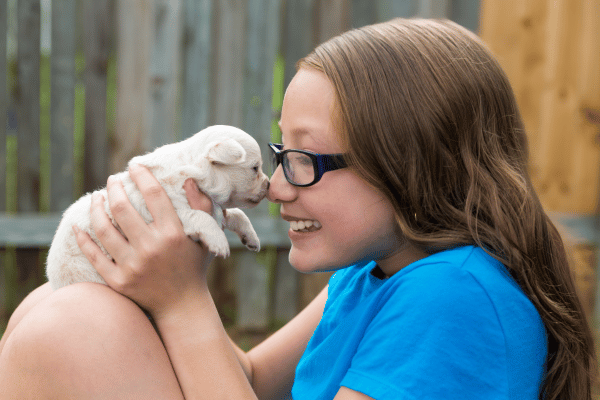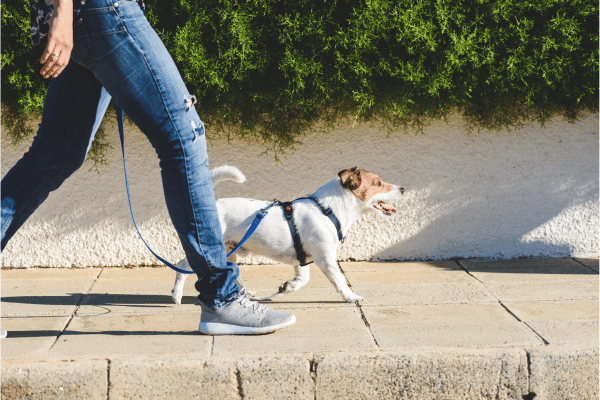Understanding the importance of puppy socialization is crucial for any dog owner. This foundational step lays the groundwork for a well-behaved, sociable dog, ensuring they grow up to be confident and comfortable in various situations. It’s a pivotal aspect of their development that can significantly influence their behavior and quality of life.
SubKey Steps in Puppy Socialization

Starting puppy socialization early is vital. Introduce your puppy to different people, animals, environments, and sounds in a controlled manner. This exposure helps them become well-adjusted adults. It’s not just about meeting other dogs; it’s about creating positive experiences across a spectrum of interactions.
Consistency is key in puppy socialization. Regular, positive encounters with the world outside their home can significantly reduce future fears and anxieties. Whether it’s a calm stroll through the park or a visit to a friend’s house, each experience builds their confidence and social skills.
Puppy socialization also involves handling by various people, which can aid in vet visits and grooming sessions. Getting them used to being touched in different areas can prevent defensive reactions during necessary check-ups or grooming. This aspect of socialization is often overlooked but is equally important.
SubOvercoming Challenges in Socialization
Socializing a puppy isn’t without its challenges. Fear periods are normal, yet they require a delicate approach. During these times, puppies may suddenly be wary of things they were previously fine with. It’s crucial to recognize and respect these fears, gently encouraging positive interactions without forcing the puppy into overwhelming situations.
Balance is essential in puppy socialization. While exposing them to various stimuli, it’s important to avoid overstimulation. Observing your puppy’s reactions and giving them time to process experiences is key. This ensures they don’t become overwhelmed, which can lead to negative associations or fear-based behaviors.
Incorporating training into socialization efforts can be highly beneficial. Simple commands like sit, stay, or come can help manage your puppy’s behavior in new environments. Training provides structure and predictability, making new experiences less intimidating for your puppy. It’s a way to build trust and communication between you and your pet.
SubPuppy Socialization Importance in Everyday Life
The importance of puppy socialization extends beyond immediate behavior. It lays a foundation for how your dog will interact with the world throughout their life. Well-socialized dogs are generally more adaptable, making them better equipped to handle changes in their environment, from moving houses to welcoming new family members.
Socialization also plays a critical role in preventing behavioral problems. Dogs that have been properly socialized are less likely to develop issues like aggression, fearfulness, and excessive barking. These behaviors often stem from fear and uncertainty, which can be mitigated through early and effective socialization practices.
Finally, the benefits of puppy socialization are not just for the puppy; they extend to the owner and the wider community. A well-behaved dog is a joy to be around, promoting positive interactions between dogs and people. This harmony enhances the bond between pets and their owners, contributing to a happier, more sociable community.
SubBuilding a Socialization Plan
Creating a structured socialization plan is crucial for your puppy’s development. Start by listing various environments, sounds, and living beings your puppy should get familiar with. Prioritize these based on your lifestyle and your puppy’s needs, ensuring a comprehensive exposure to the world around them.
Incorporate socialization into your daily routine. Simple activities like walking in different neighborhoods or visiting pet-friendly stores can offer new experiences. Remember, the goal is to make these interactions as positive as possible, using treats and praises to reinforce good behavior and comfort.
Don’t overlook the importance of playtime with other dogs. Puppy classes can be a great way to introduce this aspect of socialization in a safe and controlled environment. These classes offer the added benefit of professional guidance, helping you navigate your puppy’s socialization journey effectively.
SubNavigating Socialization Setbacks
Setbacks in puppy socialization are not uncommon, but they’re not insurmountable. If your puppy seems overly fearful or anxious, take a step back and assess the situation. It might be necessary to slow down and reintroduce them to certain experiences more gradually, always prioritizing their comfort and safety.
Reacting positively to your puppy’s fears is crucial. Avoid punishment, which can exacerbate anxiety, and instead use encouragement and rewards to build confidence. If certain situations consistently trigger fear, consider seeking advice from a professional dog trainer or behaviorist who can provide tailored strategies.
Remember, every puppy is unique, and what works for one may not work for another. Patience and persistence are key. Celebrate small victories and progress, understanding that socialization is a process. With time and effort, most puppies can overcome their fears and become well-adjusted members of society.
SubEnhancing Social Skills Through Play
Playtime is not just fun; it’s a fundamental part of puppy socialization, teaching vital social cues and behaviors. Engaging in play with a variety of friendly dogs and humans helps puppies learn how to communicate effectively, recognize boundaries, and develop patience. These play sessions should be supervised to ensure they remain positive and educational, allowing your puppy to explore social dynamics safely and build confidence in their interactions.
Structured playdates are an excellent way to control the socialization environment, especially in the early stages. Choose play partners who are known to be well-behaved and vaccinated to minimize health risks and negative experiences. During these playdates, observe your puppy’s body language closely. This will help you understand their comfort levels and intervene if play becomes too rough or if your puppy becomes overwhelmed, ensuring a positive outcome from each interaction.
Remember, the goal of play is not just to tire out your puppy but to enrich their social experiences. Incorporate a variety of toys, games, and scenarios to expose your puppy to different stimuli while playing. This variety helps prevent the development of fears and phobias, making your puppy more adaptable and well-rounded. Positive reinforcement during these play sessions reinforces good behavior, making learning enjoyable and effective.
SubSocialization Beyond the Puppy Years

Socialization is a lifelong process, not just a task for the puppy years. Continuing to expose your dog to new experiences, people, and other animals as they grow is crucial for maintaining their social skills. This ongoing effort helps prevent the development of anxieties and fears that can emerge or re-emerge as dogs age. Regular, positive social interactions keep dogs mentally stimulated and socially engaged, reinforcing the foundational work done during their puppyhood.
As dogs mature, their tolerance for new experiences can change. It’s important to remain attentive to their responses and adjust accordingly. Introducing new experiences gradually and ensuring they’re positive can help older dogs adapt without stress. This might include slower introductions to new pets, different types of people, or unfamiliar environments. The key is to keep these introductions stress-free and rewarding, encouraging curiosity over fear.
Never underestimate the value of refresher training sessions and socialization exercises for adult dogs. These can reinforce positive behaviors and help manage any emerging issues before they become problematic. Activities like attending dog-friendly events, visiting new parks, or even just taking different routes on your walks can provide valuable socialization opportunities. Each new experience is a chance to learn and grow, no matter the dog’s age.
SubPuppy Socialization Importance in Daily Adventures
Integrating socialization into daily routines transforms ordinary moments into opportunities for growth. Whether it’s a visit to a pet-friendly cafe, a walk in a bustling park, or a quiet evening with friends, each scenario presents a chance for your puppy to learn and adapt. These daily adventures are crucial for reinforcing the social skills learned in more structured settings, making them second nature to your puppy.
The unpredictability of daily life offers unique socialization opportunities that structured sessions cannot. Encountering different types of people, encountering other animals, and experiencing new sounds and sights can significantly enhance your puppy’s adaptability and confidence. It’s these spontaneous interactions that often provide the most valuable learning experiences, helping your puppy navigate the world with ease and assurance.
However, it’s essential to monitor your puppy’s stress levels during these adventures. Not every experience will be positive, and learning to recognize signs of discomfort or fear in your puppy is crucial. This awareness allows you to step in and provide support or remove your puppy from overwhelming situations, ensuring that their socialization journey remains positive and beneficial.
SubThe Role of Family in Puppy Socialization

Family involvement is pivotal in a puppy’s socialization process. Each member can play a unique role, offering diverse interactions that contribute to a well-rounded social education. From gentle play to calm handling, the variety of human contacts within a family setting helps puppies learn to trust and feel comfortable around different people. This early exposure is crucial for developing a sociable and confident adult dog.
Encouraging family members to participate in socialization activities can also foster a stronger bond between the puppy and its human pack. Activities like group walks, family play sessions, and even simple tasks like feeding or grooming can be opportunities for social learning. These interactions not only help in socializing the puppy but also in teaching family members about the puppy’s needs and behaviors, creating a more harmonious household.
It’s important, however, to ensure that all interactions are supervised and positive. Puppies are impressionable, and negative experiences can have lasting effects on their behavior. By guiding family members on how to interact appropriately with the puppy, you can ensure that socialization efforts are constructive, laying the foundation for a well-behaved and happy dog.
SubCelebrating Milestones in Puppy Socialization
Recognizing and celebrating milestones in your puppy’s socialization journey can be incredibly rewarding. Each new friend made, every novel experience navigated successfully, and all fears overcome are achievements worth acknowledging. These moments not only mark your puppy’s progress but also reinforce the positive behaviors and confidence you’ve worked together to build. Celebrating these successes can motivate both you and your puppy to continue engaging in socialization activities.
Documenting these milestones can also be beneficial. Keeping a journal or a photo album of your puppy’s socialization experiences can serve as a valuable tool for tracking progress and identifying areas that may need more focus. This record can also provide insights into your puppy’s personality and preferences, helping tailor future socialization efforts to their specific needs and ensuring a more personalized approach to their development.
Moreover, sharing your puppy’s socialization milestones with others, whether through social media or in puppy classes, can encourage a community of support and exchange of tips among fellow pet owners. This community aspect can be incredibly helpful, offering different perspectives and solutions to common challenges faced during the socialization process. Celebrating these milestones together fosters a sense of achievement and belonging, both for you and your puppy.
Conclusion: Embracing Every Step of Socialization
The journey of puppy socialization is filled with learning, growth, and bonding. As we’ve explored, from the initial stages of introducing your puppy to new experiences to celebrating their milestones, each step is crucial for their development into well-adjusted adult dogs. The importance of puppy socialization cannot be overstated—it’s the foundation upon which a lifetime of companionship and mutual understanding is built. Engaging in this process with patience, consistency, and love ensures a rewarding relationship with your furry friend.
Reflecting on the advice from experts and the experiences shared by seasoned dog owners, it’s clear that socialization is both an art and a science. Resources like the American Kennel Club offer invaluable guidance on this topic, providing a structured approach to socialization that can be adapted to fit the needs of each unique puppy (American Kennel Club). These insights emphasize the importance of a thoughtful, informed approach to socialization, highlighting the role of positive reinforcement and careful exposure to a wide range of stimuli.
As we conclude this exploration of puppy socialization, let’s remember that each moment of fear overcome, each new friend made, and every new experience is a step towards a well-behaved, confident dog. I encourage you to continue this journey, celebrating each milestone and embracing the challenges along the way. Your efforts will pave the way for a lifetime of happiness and companionship with your well-socialized dog. Share your stories, seek advice when needed, and never underestimate the power of patience and love in this beautiful process.
Reference Page: Puppy Socialization: Why, When, and How to Do It Right
I. Frequently asked questions about pet life stages
- What to consider before adopting a pet in old age?When adopting a pet in old age, it's important to consider the animal's energy level, necessary health care, and whether the senior's lifestyle can accommodate the pet's needs during its various life stages.
- How do pets behave in their final moments of life?In their final moments, pets may seek isolation, show changes in appetite or behavior, and need palliative care and comfort to ensure their last days are spent with dignity and as little discomfort as possible.
- What are the main nutritional supplements for pets?Key supplements can include omega-3 fatty acids for skin and coat health, glucosamine for joints, probiotics for digestive health, and antioxidants for immune support, varying according to the pet's life stage.
- How to deal with "hookworms" in pets?Treatment for "hookworms," caused by nematode larvae that infect the skin, includes antiparasitic medications prescribed by the veterinarian, as well as hygiene care of the environment to prevent reinfestations.
- What are the life stages of a dog and how to care for each?The life stages of a dog include puppy, juvenile, adult, and senior, and each stage requires specific care in terms of nutrition, exercise, preventive health, and attention to behavioral changes.
- What to do if your dog or cat has nightmares?If your pet has nightmares, it's important to provide a safe and comfortable sleeping environment, avoid waking them abruptly, and consult a veterinarian if the nightmares are frequent or intense, as they may indicate stress or health issues.
- How to deal with the rebellious adolescence of dogs and cats?During adolescence, which can be a rebellious phase, it's crucial to maintain a consistent routine, reinforce positive training, and provide plenty of physical and mental exercise to help manage unwanted behaviors.
- How to protect your dog from the star tick?Protection against the star tick involves regular use of antiparasitic products recommended by the veterinarian, maintaining environmental hygiene, and regular checks on the pet's fur, especially after walks in prone areas.
- Which animals undergo metamorphoses during their lives?Although the question deviates slightly from the main theme, it's interesting to note that many animals, such as butterflies, frogs, and certain types of fish, undergo significant metamorphoses during their life stages.
- What to do if your pet sheds a lot of fur?If your pet is shedding a lot of fur, it's important to maintain a regular brushing routine, consider the diet and skin health, and consult a veterinarian to rule out any underlying health issues.
- Toggle TitleToggle Content

Join Marjorie Pearson at dwfocus.com, your guide in the pet parenting world. As an experienced animal behaviorist, Marjorie offers heartfelt advice for pet owners. Her expertise spans from nurturing kittens to understanding dogs’ playful antics. She’s passionate about enhancing the bond between pets and their humans through understanding and empathy. Discover Marjorie’s practical training tips and insights on dwfocus.com, enriching your journey as a pet owner. #4PawsAndOwners #MarjorieEarsonPetWhisperer #dwfocus






